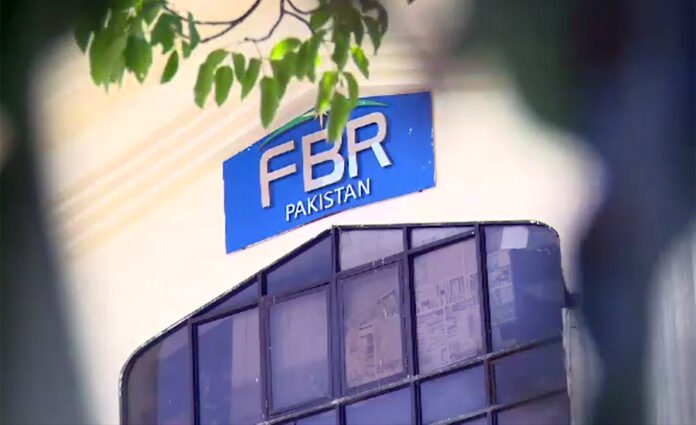An inquiry committee has determined that the flawed awarding of the Rs25 billion contract for the Track and Trace System of the Federal Board of Revenue (FBR) was due to mismanagement by the project director and two former chairmen of the FBR.
The prime minister chaired a high-level meeting over the Track and Trace System on Tuesday, PM Office’s Media Wing said in a press release.
The Prime Minister directed for initiation of strict departmental proceedings against the officials held responsible in an inquiry report for showing negligence in the enforcement of the Tack and Trace System with flawed planning and inflicting losses to the national economy.
As per a news report, the committee, led by Secretary Finance Imdad Ullah Bosal, reported its findings to Prime Minister Shehbaz Sharif, who then directed actions against the former project director Tariq Hussain Sheikh and the former member of Operations Dr. Mohammad Ashfaq, citing their direct responsibility for the lapses in the 2021 track and trace project award.
Former FBR chairman Javed Ghani was found negligent in overseeing the contract for five years. Dr. Ashfaq, who later became chairman of FBR, had been sidelined due to his involvement in another legal case.
Former members of operations Qaiser Iqbal and Amjad Zubair Tiwana, now Chairman FBR, were accountable for this delay, though no action against them was recommended.
This inquiry was the fourth under PM Sharif concerning the track and trace contract, initially awarded by the previous PTI government.
A prior inquiry led by former State Bank governor Tariq Bajwa did not find evidence of malpractice in the award process.
The contract, valued at Rs25 billion, was awarded to a consortium that included AJCL, MITAS, and Authentix, despite their financial bid being 52% higher than the lowest bid.
This resulted in an extra Rs8.5 billion payment over five years. The contract is due to expire in 2026, with the PM directing the finance minister to devise a new strategy based on the Bosal committee’s recommendations.
The system was introduced to monitor production at cigarette manufacturing, fertilizer, sugar and cement industries, identification of counterfeit products and ending of smuggling.




